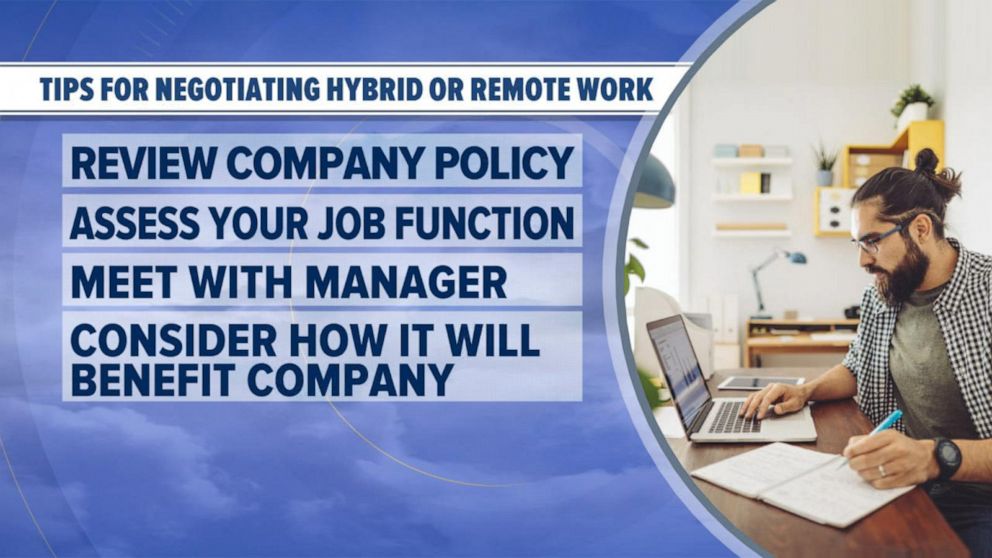Alot of people have working remote since the pandemic started in March of 2020. Now that COVID-19 vaccines are widely available and lockdown restrictions are being lifted, many employers are calling their teams back to the office, while many employees hope to continue to work remotely.
here are 7 ways to negotiate a work-from-home position.
1. Review company policy: "Does the company offer remote work? If they do, you're in luck. That makes it a much easier conversation. If they don't, you have to really prepare for a more complicated situation,"
2. Assess your job function: "Look at your work," . "What are the hours you work? What's your job function? How do you communicate with the rest of employees, including your manager? You want to put together a plan that could work for you."
3. Meet with your manager: Setting a meeting well in advance: "Be prepared with your sheet of paper ready to go, talking through the points."
Here's how to ask your manager if you can Work at Home
4. Consider how working remotely will benefit the company: "This is not about convincing your boss that you need to work from home. This is about convincing your boss that you working from home is going to benefit the company," adding as an example, "Maybe you have a two-hour commute and you could work during that two-hour commute."
5. Be prepared to hear no and have options: "If you hear no, you have a couple of options. One, you can offer to do this temporarily. Let's see how one month goes and see if that works or not. Two, you might have to be willing to leave your job for something else if work from home is not a possibility for your company,"
See a Telecommuting proposal letter
6. Be prepared for restrictions and changes: "A lot of companies that are now offering work-from-home say you still have to be in a specific city, state, or country, location, [and] that can make an impact," noting that work from home policies may also be subject to change over the next weeks, months and years.
7. Don't lose out on face time: "Face time is always important when it comes to the workplace," "Make sure you're communicating still with your managers and the people who will give you promotions in the future."

